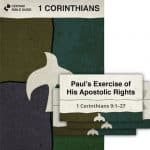
Asian North American (ANA) preachers read and interpret Scripture with a unique lens. We need a contextual hermeneutic of our own that will inform our homiletic.
But first, you may be wondering if there is a universal approach for interpreting Scripture. Do ANA pastors really interpret Scripture all that differently from members of other cultures? Wouldn’t a racially sensitive hermeneutic be susceptible to “liberal” or “misguided” interpretations? Put more strongly: Aren’t contextual theologies heretical theologies?
When one considers interpretive methods with respect to ANA contexts, some, inside and outside of ANA circles, might argue that there is no difference or should be no difference between how ANA pastors interpret Scripture and any other cultural group. “The gospel is the gospel in every context,” they say, and it’s true: the gospel never changes. The gospel is, in simple terms, the good news of Jesus Christ: his perfect and sacrificial life, death, burial, resurrection, ascension, and return. And while the historical-grammatical method of biblical interpretation taught in Western/North American evangelical seminaries stresses things with universal applicability like understanding biblical history, grammatical study, and literary context, it is also primarily or even exclusively filtered through a Western/Eurocentric/North American/white evangelical lens. White evangelical approaches to Scripture, in other words, represent the norm in North America.
As a result of this universalizing tendency, some white evangelical interpreters consider ethnic or non-white hermeneutics as suspicious, uncritical, and even promulgating heresy. By virtue of being in the majority culture, white evangelicals can claim a culture-free, attachment-free, baggage-free, and disclaimer-free understanding of theology and hermeneutics. Yet all readers of Scripture (including whites) interpret the text through their own cultural lenses that can “blind us to interpretations that the original audience and readers in other cultures see quite naturally.” Ethnic minorities trained in Western/North American seminaries often adhere to Western/Eurocentric/white models of hermeneutics.
In light of this situation, do we really need an ANA hermeneutic? Absolutely! ANAs who have been taught in Western/North American seminaries have too often functioned, in the words of sociologist Mia Tuan, as if settling for the title of “honorary whites” was the only option. The truth is, however, that we were never meant to purely replicate Western/white interpretative methods—as if Western/white interpreters do not wear their own set of culturally determined lenses. Rather, we should have our own culturally nuanced approaches to Scripture interpretation and application while still completely upholding a high view of Scripture. God has uniquely created us as ANAs, and I am arguing here for a faithful interpretation of Scripture that also includes greater racial and ethnic awareness and sensitivity. For non-ANAs, I am asking you to consider your ANA listeners’ cultures more intentionally.
I believe interpreting Scripture from only a Western/Euro-American evangelical theological framework omits necessary consideration of a bicultural or even multicultural ANA existence. It disregards God’s creativity and his plan for and celebration of ethnic and cultural diversity.
Contextualization, when done appropriately, is not hazardous to evangelical Christianity. Rather, it is imperative for interpreting Scripture faithfully in view of ethnic and cultural variances that cannot and should not be ignored.
This post is adapted from Finding Our Voice: A Vision for Asian North American Preaching by Matthew D. Kim and Daniel L. Wong (Lexham Press, 2020).








This is a great post and I’ll be checking out this book. Theologians and biblical scholars need to understand that even using labels like “contextual theology” implies a standard theology to which the contextual theologies are compared. And the standard is set by western theology. The reality is that western theology is contextual theology too. Once that is de-centered, we can enter into vibrant conversations together in the church as we discuss how we in different cultures encounter the triune God.